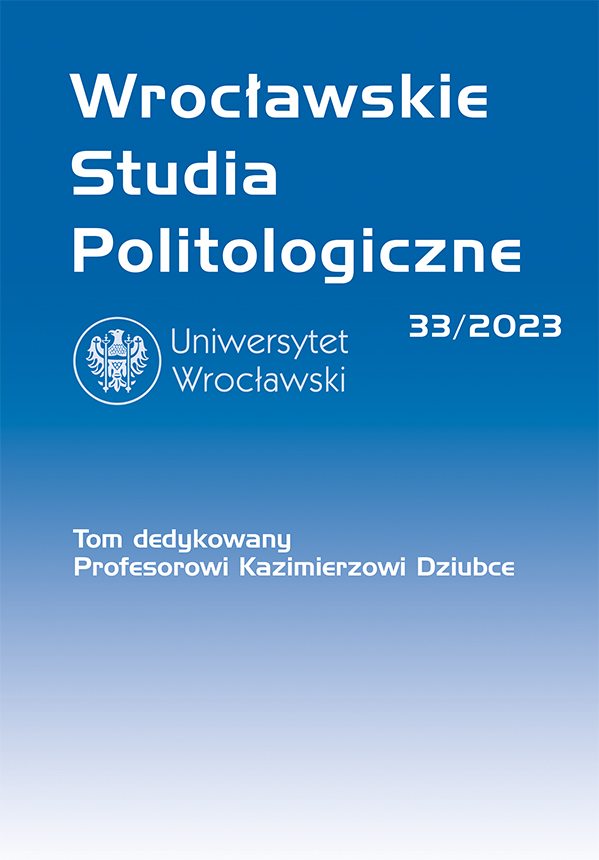

Artykuły

I present an analysis of the significance of language in the processes of identity negotiation and community building in Nakivale, one of the largest and oldest refugee camps in the world. Utilizing Homi Bhabha’s theory of hybridization, I demonstrate how language shapes interactions among refugees from diverse cultures. In Nakivale, where more than seven nationalities reside, language plays a crucial role in daily identity negotiations. The hybrid identity, formed in the “third space”, results from complex linguistic and cultural processes. I emphasize that language can both support integration and lead to exclusion if systematic support is lacking. I propose interventions aimed at promoting multilingualism and cultural sensitivity, which can improve the living conditions of refugees in Nakivale.
Agamben G., Attell K., State of Exception, Chicago 2005.
Agier M., Between War and City: Towards an Urban Anthropology of Refugee Camps, „Ethnography” 3, 2002, nr 3, s. 317–41.
Babbie E., The practice of social research, Belmont, CA 2004.
Bakhtin M., The Dialogic Imagination, Austin 1981.
Bernard H.R., Research Methods in Anthropology: Qualitative and Quantitative Approaches (2nd ed.), Thousand Oaks 1994.
Bhabha H.K., The Location of Culture, New York 1994.
Bleakley H., Chin A., Language Skills and Earnings: Evidence from Childhood Immigrants*, „Review of Economics and Statistics” 86, 2004, nr 2, s. 481–496.
Charmaz K., Grounded Theory: Objectivist and Constructivist Methods, London 2000.
Douglas M., Purity and Danger, London 1966.
Ghosh W., Homi K. Bhabha on V.S. Naipaul: in conversation with William Ghosh, „Oxford University Press Blog”, 2021.
Malkki L.H., News from nowhere: Mass displacement and globalized “problems of organization”, „Ethnography” 3, 2002, nr 3, s. 351–360.
McConnachie K., Camps of Containment: A Genealogy of the Refugee Camp, „Humanity: An International Journal of Human Rights, Humanitarianism, and Development” 7, 2016, nr 3, s. 397–412.
Nakivale Settlement Profile. Isingiro District, Uganda Acknowledgments, 2018.
Nawyn S.J., Gjokaj L., Agbényiga D.L., Grace B., Linguistic Isolation, Social Capital, and Immigrant Belonging, „Journal of Contemporary Ethnography” 41, 2012, nr 3, s. 255–282.
Rumbaut R.G., Sites of belonging: Acculturation, discrimination, and ethnic identity among children of immigrants, [w:] Discovering successful pathways in children’s development: Mixed methods in the study of childhood and family life, red. T.S. Weisner, Chicago 2005, s. 111–162.
Smith K.E., Leavy P., Hybrid Identities.Theoretical and Empirical Examinations, Leiden 2008.
Strauss A., Corbin J., Basics of qualitative research: Techniques and procedures for developing grounded theory, Thousand Oaks 1998.
Tomasello M., Carpenter M., Shared intentionality, „Developmental Science” 10, 2007, nr 1, s. 121–125. Tomasello M., Carpenter M., Call J., Behne T., Moll H., Understanding and sharing intentions: The origins of cultural cognition, „Behavioral and Brain Sciences” 28, 2005, nr 5, s. 675–691.
UN-Habitat, UNHCR. Uganda — Nakivale Settlement Profile, July 2020, 2020.
UNHCR, Conclusion on Protracted Refugee Situations No. 109 (LXI) — 2009, „Executive Commitee 61st session, Extraordinary Meeting: 8 December 2009. Contained in United Nations General Assembly document A/AC.96/1080”, 2009.
UNHCR, UNHCR Global Trends 2013, 2014.
UNHCR, UNHCR Global Trends 2023, 2024.
UNICEF, Child displacement, 2023, https://data.unicef.org/topic/child-migration-and-displacement/displacement/.
Watkins P.G., Razee H., Richters J., ‘I’m Telling You... The Language Barrier is the Most, the Biggest Challenge’: Barriers to Education among Karen Refugee Women in Australia, „Australian Journal of Education” 56, 2012, nr 2, s. 126–41.
Werbner P., Introduction: The Dialectics of Cultural Hybridity, [w:] Debating Cultural Hybridity. Multicultural Identities and the Politics of Anti-Racism, red. T. Modod, P. Werbner, London 2015.
Zetter R., Labelling Refugees: Forming and Transforming a Bureaucratic Identity, „Journal of Refugee Studies” 4, 1991, nr 1, s. 39–62.